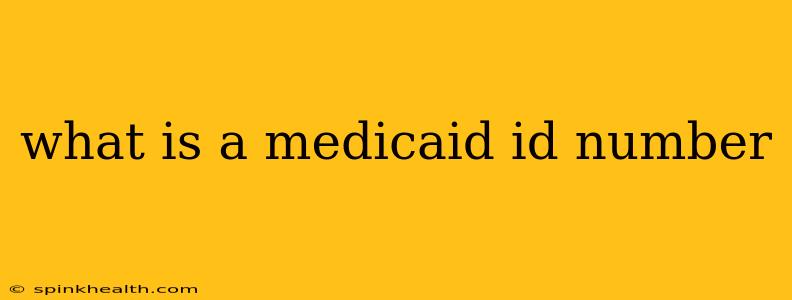What is a Medicaid ID Number? Your Guide to Understanding Medicaid Identification
Imagine this: You're at the doctor's office, feeling under the weather. The receptionist asks for your insurance information. You fumble for your card, and there it is – a string of numbers. That, my friend, is likely your Medicaid ID number. But what exactly is it, and why is it so important?
This isn't just a random set of digits; it's your unique identifier within the Medicaid system. Think of it as your personal key to accessing the healthcare benefits provided by your state's Medicaid program. It's crucial for tracking your medical records, processing claims, and ensuring you receive the care you're entitled to. Without it, navigating the healthcare system while on Medicaid becomes significantly more challenging.
Let's delve deeper into the specifics:
What does a Medicaid ID number look like?
There's no single universal format. The appearance of your Medicaid ID number varies depending on the state. Some states use alphanumeric combinations (letters and numbers), while others stick to purely numeric sequences. The length also fluctuates; you might encounter numbers ranging from eight digits to much longer strings. The key is that it's uniquely assigned to you and linked to your specific Medicaid application.
How do I get a Medicaid ID number?
Obtaining your Medicaid ID number is straightforward. It's issued after your application for Medicaid is approved. Once approved, you'll receive your Medicaid card and other important information, including your unique ID. This card typically includes your name, the state's Medicaid logo, and of course, your precious ID number.
What information is associated with my Medicaid ID number?
Your Medicaid ID number is tied to a wealth of information within the system. This includes:
- Your personal details: Name, address, date of birth.
- Your medical history: Doctors you've visited, treatments you've received, diagnoses, and prescriptions.
- Your coverage details: The specific benefits you're entitled to under your state's Medicaid plan.
- Your claim history: A record of all the medical claims submitted on your behalf.
How is my Medicaid ID number used?
This number acts as your primary identifier across the entire Medicaid system. Healthcare providers use it to:
- Verify your eligibility: Confirm that you're currently enrolled in Medicaid and have active coverage.
- Submit claims for reimbursement: Send bills to the Medicaid program for payment.
- Access your medical records: Retrieve your medical information for continuity of care.
What should I do if I lose my Medicaid card or don't know my Medicaid ID number?
Don't panic! Losing your card doesn't mean losing your coverage. Contact your state's Medicaid office immediately. They can help you replace your card and confirm your ID number. They'll likely ask for some personal identifying information to verify your identity before providing your number.
Is my Medicaid ID number the same as my social security number?
No, they are distinct. Your Social Security number is a broader identifier used for various purposes, including taxation and employment. Your Medicaid ID number is specifically for accessing Medicaid benefits. Keep them separate; they serve different purposes.
In conclusion, your Medicaid ID number is a critical piece of information for accessing healthcare services under the Medicaid program. Treat it with the care it deserves, as it ensures seamless access to essential medical care and keeps a smooth track of your medical journey. Knowing its importance and how to protect it is key to a worry-free experience.

